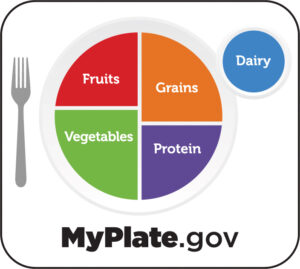4 ways to strengthen your brain health
A lot of the same things that are good for our bodies are good for our brain. Seth Carter, D.O., geriatric and family medicine specialist at LECOM Institute for Successful Aging and Eastside Medical Center, says brain health is affected by four main things: eating healthy, exercising regularly, social interaction and playing brain games.
1. Eat healthy
It’s important to have a well-balanced diet to strengthen your brain health. The Mediterranean lifestyle (it goes beyond just food), or Blue Zones diet, is very good about making sure you are getting a good variety of foods – lots of fruits and vegetables, whole grains, nuts and legumes, beans and lentils. These are high in nutrition, vitamins and minerals, and they have a lot of fiber and plant-based protein. Our bodies need this plant-based protein as much as we need to eat other sources of protein.
Try eating poultry and fish instead of beef and pork. Turkey and chicken are really good for you. You can eat crab and other shellfish, but Mediterranean encourages mostly fish – a variety of saltwater and freshwater fish. You could have salmon, tuna, tilapia, sturgeon, walleye and perch, mahi, halibut, etc. Eating different fish will give you a variety of nutritional benefits, including adding a mix of vitamins and minerals to your diet.
 Here is one example of a dinner, using MyPlate guidance:
Here is one example of a dinner, using MyPlate guidance:
- 60%-70% = Fruit and vegetables
- quinoa salad with mint, parsley, tomatoes, cucumbers, cilantro, goat or feta cheese; olive oils and homemade vinaigrettes – the simpler, the better – olive oil and balsamic vinegar with salt and pepper is great
- 15% = Protein
- fish or chicken breast on the side
- Dairy in moderation
- Water
Eating a diet high in fresh fruits and vegetables and low in meats actually helps with brain health and memory, as well as decreases stress and depression rates. Eat to feel and think better.
If you’re excited to eat something healthy, you will also release endorphins. Eating healthy with people you enjoy spending time with helps decrease stress and depression rates and loss of memory. The more you are spending time with others, the less you will experience memory loss.
Vegetables are great because they have a lot more minerals than fruit. Fruits have a lot of vitamins and antioxidants, but they also have a lot of calories. Berries are great because they are high in nutrition and low in calories, so they are even healthier than an apple or a banana. Think of your strawberries, blueberries, grapes, raspberries, cranberries, acai berries, etc.
Green, leafy vegetables have a lot of vitamins like Vitamin K and calcium and iron. Having a variety of vegetables in your diet is your goal. Peppers all have different flavors, textures and nutritional value. Open yourself up to more than just one kind of vegetable.
Keep in mind that plant-based
But what about cake?
Research shows that Thanksgiving-style dinner – including cake – once a month is OK as long as you are eating a variety of healthy foods on a regular basis the rest of the time.
 2. Exercise regularly – preferably in nature
2. Exercise regularly – preferably in nature
A lot of research shows that nature walks are very helpful with brain health. It allows your mind to relax because of its passive nature.
To unwind at the end of a stressful day, many people sit in front of the TV or computer screen. This doesn’t help your mind relax because your brain is still active, thinking and concentrating on the storyline that’s in front of it. To truly relax, go for a nature walk.
A lot of people put off exercise because they imagine only going to the gym or buying expensive equipment. For brain health, exercise can be as simple as being more active:
- Go for a walk every day after dinner or every morning before work.
- Park at the end of the parking lot and walk in to work to get more steps in and to be more active.
- Take the stairs whenever it is reasonable.
If you are looking to include more intense exercise in your routine, it’s good to have a mix of cardiovascular and aerobic exercise throughout the week. The goal is to get your heart pumping for 30 minutes a day, six days a week.
3. Socialize with others
Social interaction helps maintain brain health, stimulate continued growth and memory development. Research shows benefit to reminiscence. Sharing stories helps your mind to relive experiences, which keeps synapses in the brain active.
A variety of card games can help strengthen the short-term memory, while reminiscing helps strengthen long-term memory.
Developing relationships provides opportunity to reminisce and has the potential to reduce stress. Go out and find people to talk to, walk with, dine with. Visit friends with intention: Ask them about their childhood while eating a healthy salad. Play card games and puzzles together. Go on nature walks together. The more social you are, the easier it is to stick to healthy lifestyles that will benefit your mind.
4. Play brain games like a child
As we grow older, many of us look forward to retirement. But when that day comes, we often find ourselves questioning what to do and end up watching TV and not stimulating our mind in healthy ways. Instead, play brain games to strengthen brain health.
- Try crossword puzzles, word search games, Sudoku, logic puzzles, card games, memory and matching shapes.
- Card games stimulate the brain. Word games help with recall.
- Memory games that young children play are good games to review as an aging adult. It helps you maintain your cognitive ability.
Identify a hobby, people you want to spend time with, other ways to keep stimulating your brain and staying active and social.


